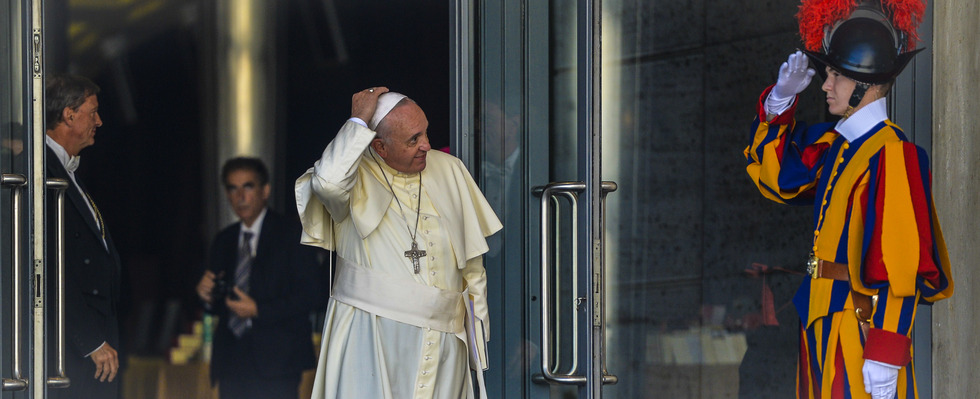Parochial Life
Father Ray Blake FAITH MAGAZINE November - December 2014
The Choppy See of Peter
I suspect Paul VI will be the last Italian pope (if we discount the short reign of John Paul I). It strikes me that he had Italian virtues and vices, a touch of “Futurism”, a bit too prone to trust those who would betray him and not a very good organiser.
St John Paul II was Polish philosopher. So Polish, in fact, that some suggest his encyclicals are in part only decipherable to someone with an understanding of his brand of philosophy. Benedict XVI was a German, a Bavarian, so anxious to avoid dictatorship that he appointed his enemies to key positions, to the point that his papacy fell apart. Francis is an Argentinian who has witnessed so much bad government he is conscious of the dangers and seems to want to avoid the failure of his predecessor with a neuralgic fervour.
I am sure this is a poor summary but my point is that the Catholic Church in the last 50 years has wobbled from one point to another reflecting the particular concerns of particular popes. Presumably when we have an African or an Asian pope it is going to wobble even more. Nowadays I meet priests who supported Pope Benedict’s liturgical initiatives but now have no time for them. They were “Benedictines”. Now they have become “Franciscans”.
In a sense they are “loyal Catholics” but with each papacy they change, and will continue to change. Under Benedict they fought relativism. Under Francis they tolerate it. We see the same thing happening in parishes, where a change of priest often betokens a drastic change of direction. The result, however, is rarely growth and often serious confusion along with a loss of faith that results in lapsation.
“If the Church of Rome becomes the source of innovation, can it also be the touchstone of unity?”
In the past the pope was a distant figure who had no impact on the lives of the faithful. But when the papacy is writ large – in fact huge – as this papacy seems to be, and if the next pope and the one after that are equally huge, and if the contrast between popes is so great, can merely being “in communion” with the pope be the guarantor of Catholicism? For some, already, being in communion with Francis means no longer being in communion with Benedict, or Pius or Leo.
The Petrine ministry belongs to the See of Peter, presumably, rather than to the individual who occupies that See. Teaching might not change but its presentation seems to be moving with revolutionary violence that risks shaking the Church to pieces. The most affected are those who could be termed “conservative Catholics”. Trads hold on to tradition, liberals to liberalism, but when the tree is shaken so violently what do the conservatives hold on to? Or are they going to be swept away in the tsunami?
Even for liberals there is a problem. What holds them in the Church? Is it that the Church somehow does good? That it gives aid and education, produces an environment where “human flourishing”, to use a catch phrase, takes place? Are we really talking about “cultural Catholics”, united to the Church by “works” rather than faith in Jesus Christ and his teaching? That might work for a generation or two but in the Church there aren’t many young liberals any more. They have all joined Greenpeace or become feminists or are campaigning against fracking or for LGBT rights. The cultural ties and folk memory that bound their grandparents to the Church do not bind them.
“Presumably when we have an African or an Asian pope the Church is going to wobble even more”
I really am beginning to think that the papacy, which Vatican II saw as unitive, actually becomes self-destructive if it becomes innovative. The very purpose of the papacy is to conserve that which was handed on to it. In the first millennium the faith of the “City of the Two Apostles” stood still while the world revolved; its lack of innovation made it the touchstone of orthodoxy during the Arian and Iconoclastic crises and enabled it to be the memory of the Tradition of the whole Church.
If the Church of Rome becomes the source of innovation, can it also be the touchstone of unity? If not, where can we find that unity which, after all, was promised us by Christ? Can it exist outside of unity with Rome? The answer Orthodoxy and “ultra-Catholics” come up with is that it exists within the Tradition itself. Are ordinary Catholics in my parish and elsewhere going to come up with the same answer?
Father Ray Blake is the parish priest of St Mary Magdalen’s Church in Brighton. You can read his blog at marymagdalen.blogspot.co.uk


